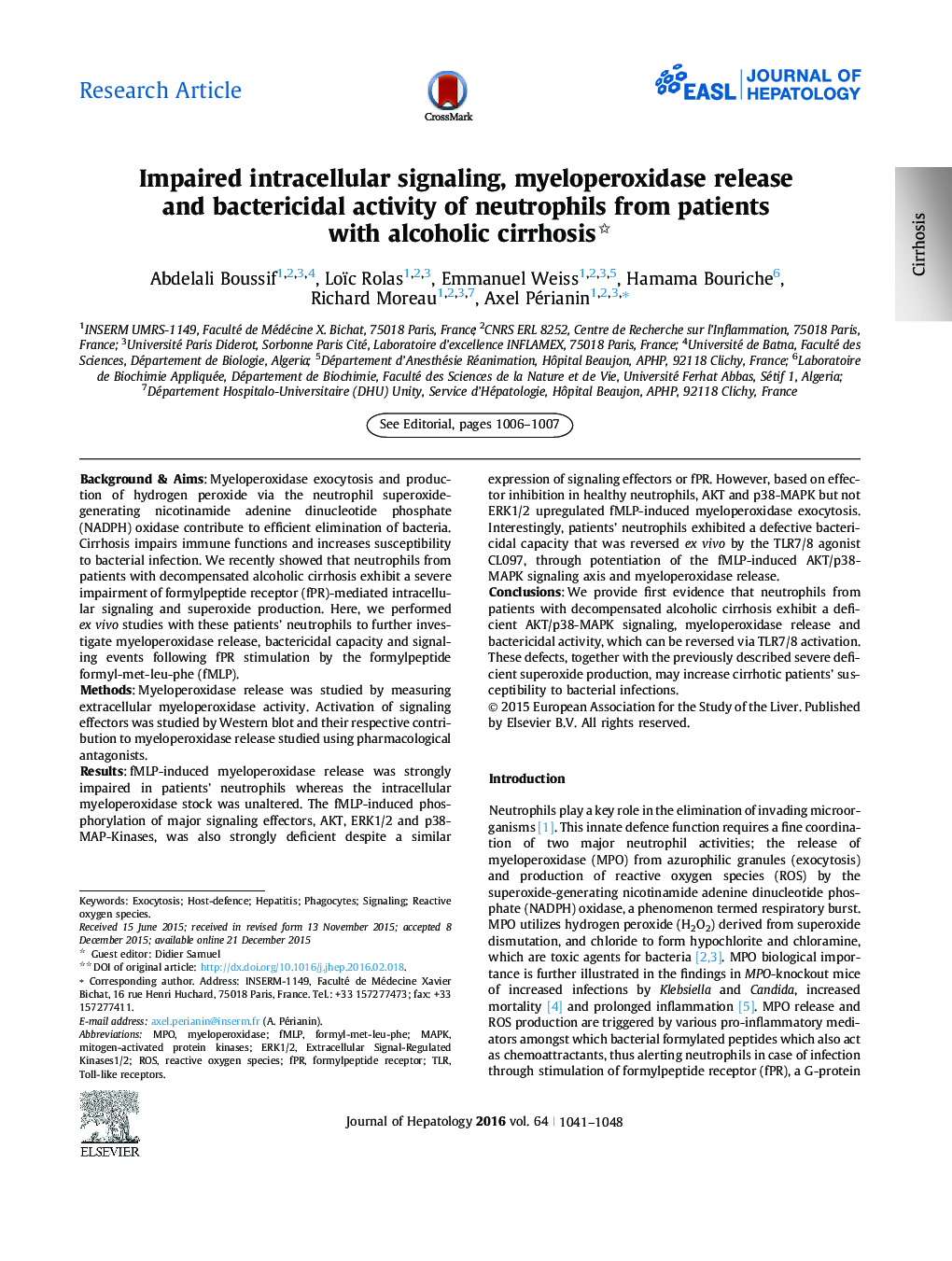| کد مقاله | کد نشریه | سال انتشار | مقاله انگلیسی | نسخه تمام متن |
|---|---|---|---|---|
| 6101056 | 1211098 | 2016 | 8 صفحه PDF | دانلود رایگان |

Background & AimsMyeloperoxidase exocytosis and production of hydrogen peroxide via the neutrophil superoxide-generating nicotinamide adenine dinucleotide phosphate (NADPH) oxidase contribute to efficient elimination of bacteria. Cirrhosis impairs immune functions and increases susceptibility to bacterial infection. We recently showed that neutrophils from patients with decompensated alcoholic cirrhosis exhibit a severe impairment of formylpeptide receptor (fPR)-mediated intracellular signaling and superoxide production. Here, we performed ex vivo studies with these patients' neutrophils to further investigate myeloperoxidase release, bactericidal capacity and signaling events following fPR stimulation by the formylpeptide formyl-met-leu-phe (fMLP).MethodsMyeloperoxidase release was studied by measuring extracellular myeloperoxidase activity. Activation of signaling effectors was studied by Western blot and their respective contribution to myeloperoxidase release studied using pharmacological antagonists.ResultsfMLP-induced myeloperoxidase release was strongly impaired in patients' neutrophils whereas the intracellular myeloperoxidase stock was unaltered. The fMLP-induced phosphorylation of major signaling effectors, AKT, ERK1/2 and p38-MAP-Kinases, was also strongly deficient despite a similar expression of signaling effectors or fPR. However, based on effector inhibition in healthy neutrophils, AKT and p38-MAPK but not ERK1/2 upregulated fMLP-induced myeloperoxidase exocytosis. Interestingly, patients' neutrophils exhibited a defective bactericidal capacity that was reversed ex vivo by the TLR7/8 agonist CL097, through potentiation of the fMLP-induced AKT/p38-MAPK signaling axis and myeloperoxidase release.ConclusionsWe provide first evidence that neutrophils from patients with decompensated alcoholic cirrhosis exhibit a deficient AKT/p38-MAPK signaling, myeloperoxidase release and bactericidal activity, which can be reversed via TLR7/8 activation. These defects, together with the previously described severe deficient superoxide production, may increase cirrhotic patients' susceptibility to bacterial infections.
211
Journal: Journal of Hepatology - Volume 64, Issue 5, May 2016, Pages 1041-1048